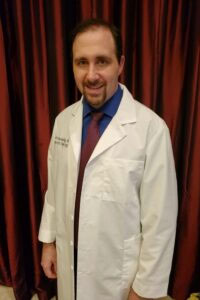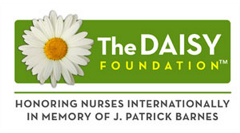Dr. Jon Rosensweig interviewed on the importance of mammograms in the Boca Voice
Oct 19, 2020Screening and diagnostic tools for breast cancer have come a long way. “You don’t want to wait for a lump,” says Dr. Jon Rosensweig, radiologist for The Breast Center at West Boca Diagnostic Imaging.
Here’s the newest imaging advances during Breast Cancer Awareness Month.
 Q: What’s the latest data on when women should start getting checked?
Q: What’s the latest data on when women should start getting checked?
A: Begin mammography every year for the average patient starting at age 40. Starting at 40, there’s chances of detecting early and survival improvements. We know there is a survival benefit.
Q: What are the latest risk factors?
A: The average risk patient has one in eight chances of developing breast cancer, about a 13% chance. There are people with higher risks. One is family history; it’s a genetic risk. At The Breast Center we ask you a series of questions to determine your risk. If it’s determined you qualify for genetic screening, the radiologist will put that in the report to the doctor. Other factors we know of: if you never had a child; if you started menstruation younger than 11, obesity. Also, if you had a first child over age 30 or late menopause after age 55. Anything that extends your menstrual age.
 Q: Does birth control factor in?
Q: Does birth control factor in?
A: Certain hormone replacements but not all. Usually ones that include estrogen and progesterone. Physical inactivity, increased alcohol and tobacco use. Those are the big ones.
Q: What would be the next step?
A: You fall into three risk categories: average risk, less than 15% lifetime risk; intermediate risk, 15-20%, or greater than 20%. Average risk you get your screening mammogram. Intermediate gets a screening mammogram and an additional screening test, screening breast ultrasound. That’s only worth doing if you have dense breasts on your mammogram.
Q: What about high risk?
A: That’s dependent on what makes you high risk. For example, if you have a first-degree relative, sister or mother who had breast cancer at 45. Then you should start at age 35 if you’re in that high-risk category. For everyone in high risk, get a recommendation for a screening MRI every year.
Q: What symptoms should you pay attention to right away?
A: If you have a breast lump you can feel. Or if you have a focal area of breast pain, ‘it hurts right here.’ Then come in for a diagnostic mammogram and ultrasound.
Q: Do you need a doctor’s referral for those tests?
A: A screening mammogram, you can walk in as a self-referral. All the other studies, you need a doctor’s order. It can be your primary care or ob/gyn.
Q: What if you find something on a screening mammogram?
A: We will call you back for more imaging. About 10% we call back. We do whatever we think is necessary. From there, if there’s still something suspicious, we proceed to a biopsy. About 10% need a biopsy. They’re image-guided and minimally invasive. So it’s just a needle. There’s no scar or anesthesia. The whole thing takes an hour.
Q: How long does it take to get results?
A: We send the specimen to the lab at the hospital. It takes a couple days; 15% come back positive. Then we have you see a breast surgeon. For everyone else, we keep an eye on it.
Q: Talk about advances in equipment.
A: The real term for this 3D mammography is digital breast tomosynthesis. Everything overlaps, so if we break it up to lots of images, we can see cross-sections like slices. It’s up to 50% increased cancer rate and 40% decrease in callback rate. It’s critical that every mammogram should be done by that.


 The BEE Award recognizes all ancillary and
allied health employees. BEE stands for “Being Exceptional Every Day”! The award honors ancillary and allied health employees’ outstanding care as recognized by our patients and their families. After visiting their sick relatives,
many families ask how they can express their gratitude for the excellent quality care. They are grateful and thankful for our compassionate staff. With the BEE Award, we can honor our extraordinary team members at West Boca. Nominations can be submitted
by patients, families, and colleagues.
The BEE Award recognizes all ancillary and
allied health employees. BEE stands for “Being Exceptional Every Day”! The award honors ancillary and allied health employees’ outstanding care as recognized by our patients and their families. After visiting their sick relatives,
many families ask how they can express their gratitude for the excellent quality care. They are grateful and thankful for our compassionate staff. With the BEE Award, we can honor our extraordinary team members at West Boca. Nominations can be submitted
by patients, families, and colleagues.